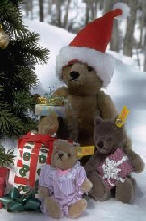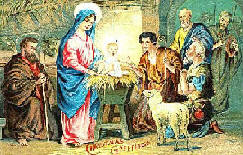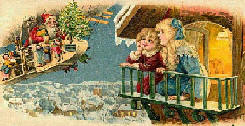Ќазад
Traditional English Holidays
PUBLIC HOLIDAYS AND
CELEBRATION
There are only six public holidays
a year in Great Britain, that is days on which people need not go in to work.
They are: Christmas Day, Boxing Day, Good Friday, Easter Monday, Spring Bank
Holiday and Late Summer Bank Holiday. In Scotland, the New YearТs Day is also a
public holiday. Most of these holidays are of religious origin, though it would
be right to say that for the greater part of the population they have long lost
their religious significance and are simply days on which people relax, eat,
drink and make merry. All the public holidays, except Christmas Day and Boxing
Day observed on December 25th and 26th respectively, are
movable, that is they do not fall on the same day each year. Good Friday and
Easter Monday depend on Easter Sunday which falls on the first Sunday after a
full moon on or after March 21st. The Spring Bank Holiday falls on
the last Monday of May or on the first Monday of June, while the late Summer
Bank Holiday comes on the last Monday in August or on the first Monday in
September, depending on which of the Mondays is nearer to June 1st
and September 1st respectively.
Besides public holidays, there
are other festivals, anniversaries and simply days, for example Pancake Day and
Bonfire Night, on which certain traditions are observed, but unless they fall on
a Sunday, they are ordinary working days.
NEW YEAR IN ENGLAND
 In England
the New Year is not as widely or as enthusiastically observed as Christmas. Some
people ignore it completely and go to bed at the same time as usual on New
YearТs Eve. Many others, however, do celebrate it in one way or another, the
type of celebration varying
very much according to the local custom, family tradition and personal taste.
In England
the New Year is not as widely or as enthusiastically observed as Christmas. Some
people ignore it completely and go to bed at the same time as usual on New
YearТs Eve. Many others, however, do celebrate it in one way or another, the
type of celebration varying
very much according to the local custom, family tradition and personal taste.
The
most common type of celebration is a New Year party, either a family party or
one arranged by a group of young people. This usually begins at about eight
oТclock and goes on util the early hours of the morning. There is a lot of
drinking , mainly beer, wine, gin and whisky; sometimes the hosts make a big
bowl of punch which consist of wine, spirits, fruit juice and water in varying
proportions. These is usually a buffet supper of cold meat, pies, sandwiches,
savouries, cakes and biscuits. At midnight the wireless is turned on, so that
everyone can hear the chimes of Big Ben, and on the hour a toast is drunk to the
New Year. Then the party goes on .
Another popular way of celebrating the New Year is to go to a New YearТs dance.
Most hotels and dance halls hold a special dance on New YearТs Eve. The hall is
decorated, there are several different bands and the atmosphere is very gay.
The
most famous celebration is in London round the statue of Eros in Piccadilly
Circus where crowds gather and sing and welcome the New Year. In Trafalgar
Square there is also a big crowd and someone usually falls into the fountain.
Those who have no desire or no
opportunity to celebrate the New Year themselves can sit and watch other people
celebrating on television. It is an indication of the relative unimportance of
the New Year in England that the television producers seem unable to find any
traditional English festivities for their programmes and usually show Scottish
ones.
January 1st, New YearТs
Day, is not a public holiday, unfortunately for those who like to celebrate most
of the night. Some people send New Year cards and give presents but this is not
a widespread custom. This is the traditional time for making УNew Year
resolutionsФ, for example, to give up smoking, or to get up earlier. However,
these are generally more talked about than put into practice.
Also on New YearТs Day the УNew
Year Honours ListФ is published in the newspapers; i. e. a list of those who are
to be given honours of various types-knighthoodТs, etc.
CHRISTMAS DAY
 Christmas
Day is observed on the 25th of December. In Britain this day was a
festival long before the conversion to Christianity. The English historian the
Venerable Bede relates that the ancient peoples of Angli began the year on the
25th of December, and the very night was called in their tongue
modranecht, that is СmotherТs nightТ. Thus it is not suprising that many social
customs connected with the celebration of Christmas go back to pagan times, as,
for instance, the giving of presents. Indeed, in 1644 the English puritans
forbade the keeping of Christmas by Act of Parliament, on the grounds that it
was a heathen festival. At the Restoration Charles II revived the feast.
Christmas
Day is observed on the 25th of December. In Britain this day was a
festival long before the conversion to Christianity. The English historian the
Venerable Bede relates that the ancient peoples of Angli began the year on the
25th of December, and the very night was called in their tongue
modranecht, that is СmotherТs nightТ. Thus it is not suprising that many social
customs connected with the celebration of Christmas go back to pagan times, as,
for instance, the giving of presents. Indeed, in 1644 the English puritans
forbade the keeping of Christmas by Act of Parliament, on the grounds that it
was a heathen festival. At the Restoration Charles II revived the feast.
Though religion in Britain has
been steadily losing ground and Christmas has practically no religious
significance for the majority of the population of modern Britain, it is still
the most widely celebrated festival in all its parts except Scotland. The reason
for this is clear. With its numerous, often rather quaint social customs, it is
undoubtedly the most colourful holiday of the year, and, moreover one that has
always been, even in days when most people were practising Christians, a time
for eating, drinking and making merry.
However, despite the
popularity of Christmas, quite a number of English people dislike this festival,
and even those who seem to celebrate it wholeheartedly, have certain
reservations about it. The main reason for this is that Christmas has become the
most commercialized festival of the year. The customs and traditions connected
with Christmas, for example giving presents and having a real spree once a year,
made it an easy prey to the retailers, who, using modern methods of advertising,
force the customer to buy what he neither wants nor, often, can reasonably
afford.
It is not only children
members of the family that exchange presents nowadays. Advertising has widened
this circle to include not only friends and distant relations, but also people
you work with. An average English family sends dozens and dozens of Christmas
cards, and gives and receives almost as many often practically useless presents.
For people who are well off this entails no hardship, but is no small burden for
families with small budgets. Thus saving up for Christmas often starts months
before the festival, and Christmas clubs have become a national institution
among the working class and lower-middle class. These are generally run by
shopkeepers and publicans over a period of about eight weeks or longer. Into
these the housewives pay each week a certain amount of money for their Christmas
bird and joint, their Christmas groceries and so on, the husband as a rule
paying into the club run by the local pub, for the drinks.
As much of this spending is
forced upon people and often means that a family has to do without things they
really need, it inevitably leads to resentment towards the festival. Needless
to say that it isnТt the old customs and traditions that are to blame, but
those who make huge profits out of the nationwide spending spree which they
themselves had boosted beyond any reasonable proportion.
CHRISTMAS EVE
 On Christmas Eve everything is rush and bustle. Offices and public buildings
close at one oТclock, but the shops stay open late. Most big cities, especially
London, are decorated with coloured lights across the streets and enormous
Christmas trees. The main line station, trains and buses are crowded with people
travelling from all parts of the country to be at home for Christmas.
On Christmas Eve everything is rush and bustle. Offices and public buildings
close at one oТclock, but the shops stay open late. Most big cities, especially
London, are decorated with coloured lights across the streets and enormous
Christmas trees. The main line station, trains and buses are crowded with people
travelling from all parts of the country to be at home for Christmas.
In
the homes there is a great air of expectation. The children are decorating the
tree with tinsel, various baubles and often
coloured lights as well. The house
is decorated with holly and a bunch of mistletoe under which the boys kiss the
girls. Christmas cards-with the words A Merry Christmas to You, or Wishing You a
Merry Christmas and a Prosperous New Year, or With the Compliments of the
Season, etc.-are arranged on mantelpieces, shelves, tables, and sometimes
attached to ribbon and hung round the walls.
Meanwhile the housewife is probably busy in the kitchen getting things ready for
the next dayТs dinner. The Christmas bird, nowadays usually a turkey, is being
prepared and stuffed, the pudding is inspected and the cake is got out of itТs
tin and iced.
In
small towns and villages one may still see carol-singer who come and stand in
front of the house and sing or play Christmas carols. They expect a Christmas
box from a few pennies or coppers upwards in return for their musical efforts.
The money collected is then donated to some deserving cause, for example to help
destitute old people.
Ilutova Marina
15 years
Okha, Sakhalin,
2002
Сайт создан в системе
uCoz In England
the New Year is not as widely or as enthusiastically observed as Christmas. Some
people ignore it completely and go to bed at the same time as usual on New
YearТs Eve. Many others, however, do celebrate it in one way or another, the
type of celebration varying
very much according to the local custom, family tradition and personal taste.
In England
the New Year is not as widely or as enthusiastically observed as Christmas. Some
people ignore it completely and go to bed at the same time as usual on New
YearТs Eve. Many others, however, do celebrate it in one way or another, the
type of celebration varying
very much according to the local custom, family tradition and personal taste.

